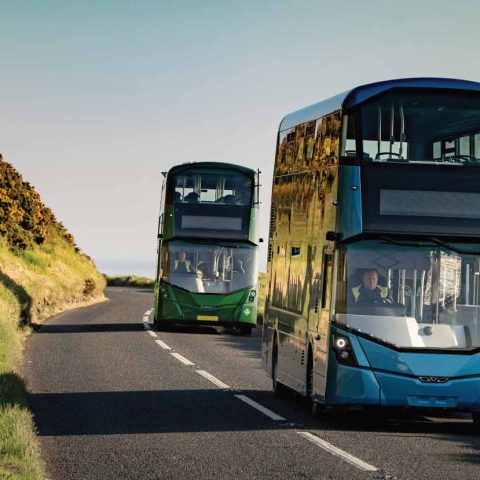UK Government provides funding for up to 335 ZE buses in five cities
UK Government has announced that it will support five local transport authorities with funding worth nearly £71m under the Zero Emission Bus Regional Area scheme. The investment will support the introduction of up to 335 zero emission buses. The winning authorities were: Cambridgeshire and Peterborough Combined Authority; Kent County Council; Leicester City Council; Milton Keynes Borough Council […]

UK Government has announced that it will support five local transport authorities with funding worth nearly £71m under the Zero Emission Bus Regional Area scheme. The investment will support the introduction of up to 335 zero emission buses.
The winning authorities were: Cambridgeshire and Peterborough Combined Authority; Kent County Council; Leicester City Council; Milton Keynes Borough Council and Warrington Borough Council.
ZEBRA scheme in the UK: 335 zero emission buses
The funding is awarded under the scheme’s fast-track process and represents part of the £270 million made available in the financial year 2021 to 2022 to introduce zero emission buses and the infrastructure needed to support them. The support is to help local transport authorities outside London to introduce zero emission buses. The scheme was first announced by the Prime Minister in February 2020.
Up to £50m of money already-announced from the ZEBRA scheme is expected to go to bids made via the standard process, the authorities make public.
Kent County Council will get £9.5m; Milton Keynes Council £16m; and Warrington Borough Council around £21.5m. Leicester City Council’s business case called for around £19m and that for Cambridgeshire and Peterborough Combined Authority £4.3m, indicating that both have been allocated the respective sum applied for.
In the Budget Statement, the Chancellor Rishi Sunak confirmed that an additional £355m is to be made available to support the introduction of to zero emission buses. While the immediate funding announcement was welcomed, the Confederation of Passenger Transport raised questions about whether the pace of funding is sufficent to achieve the Government’s plans to part-fund 4,000 ZEBs in England by 2025.








